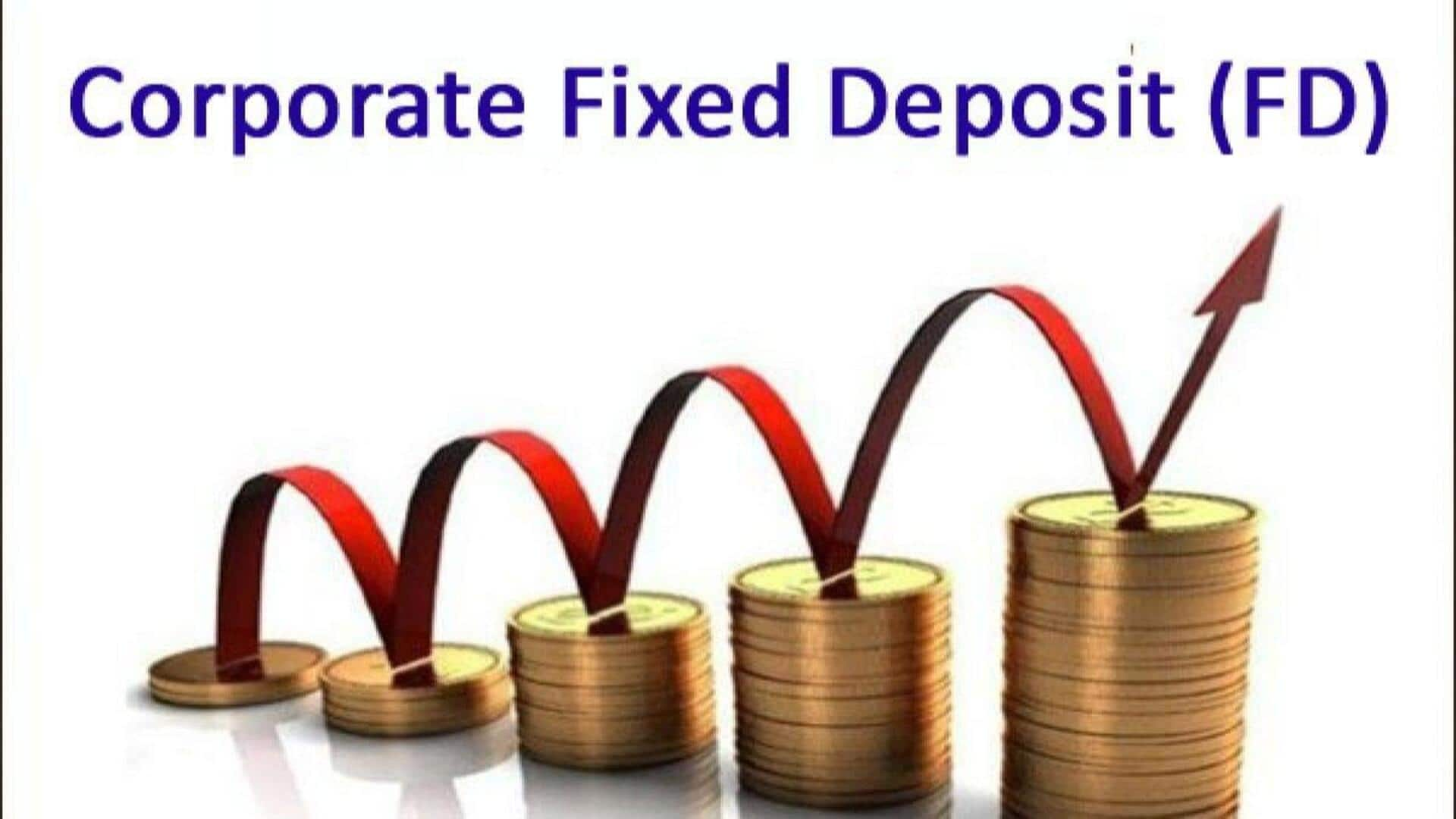
Should you invest in corporate fixed deposits?
What's the story
Corporate fixed deposits (FDs) are a popular investment option in India, luring investors with higher interest rates than bank FDs. They are offered by companies to raise funds for business operations and expansion. This makes them an attractive option for those looking for stable returns. However, before you invest, it's important to know the benefits, risks, and how to choose the right corporate FD.
#1
Understanding corporate fixed deposits
Corporate fixed deposits are investment schemes offered by companies for a fixed tenure at a predetermined interest rate. Unlike traditional bank FDs, corporate FDs usually offer higher interest rates because of the higher risk involved. These deposits can be a good option for risk-taking investors looking for better returns than traditional savings accounts or bank FDs.
#2
Benefits of investing in corporate FDs
One of the biggest advantages of corporate fixed deposits is the higher interest rates they offer, usually between 7% and 10% per annum. This is significantly higher than what banks offer on regular FDs. Also, corporate FDs usually come with flexible tenures, ranging from six months to five years, giving investors the freedom to choose according to their financial goals.
#3
Risks associated with corporate FDs
While corporate fixed deposits can be lucrative, they also come with risks. The biggest risk is the credit risk of the company defaulting on payment. It is crucial to check the credit rating of the company before investing. Lower-rated companies may offer higher returns but come with a greater risk of default.
Tip 1
Tips for choosing the right corporate FD
When selecting a corporate FD, it is important to check the company's credit rating. Stick to companies rated "AA" or above by reputed credit rating agencies. This ensures a certain level of safety for your investment. Also, compare interest rates across different companies and consider factors like tenure flexibility and early withdrawal penalties before making a decision.
Tip 2
Tax implications on corporate fixed deposits
Interest earned on corporate fixed deposits is taxable as per the investor's income tax slab rate. Investors should factor in tax implications while calculating returns from these investments. One can also opt for tax-saving fixed deposits with a lock-in period of three years if they want to reduce taxable income under Section 80C of the Income Tax Act.